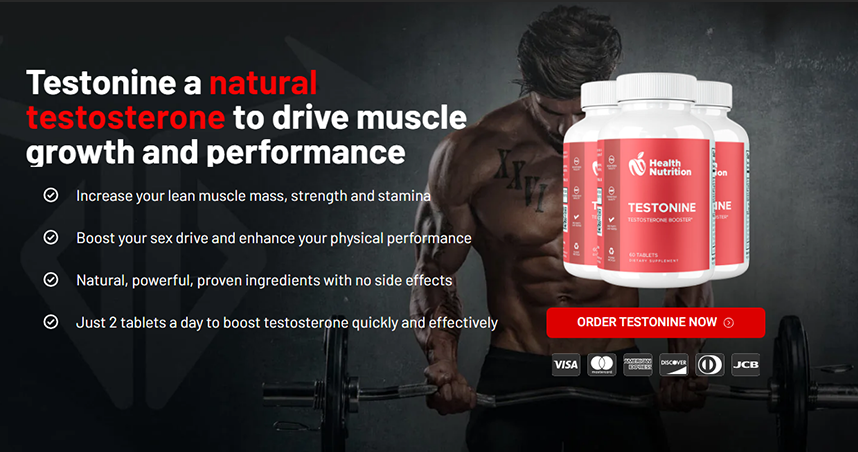
Male fertility is often tied to overall hormonal health, and testosterone plays a leading role in this complex equation. While it’s widely recognized as the hormone responsible for muscle growth and libido, testosterone is also essential for sperm production and reproductive success. If fertility has become a concern, optimizing testosterone levels can provide a natural and effective way to improve sperm health and increase the chances of conception.
Contents
The Role of Testosterone in Male Fertility
Testosterone isn’t just about biceps and bravado—it’s critical for male fertility. This hormone regulates the production of sperm and supports the overall functioning of the male reproductive system.
Testosterone and Sperm Production
Sperm production, or spermatogenesis, occurs in the testes and relies heavily on testosterone. Without sufficient levels, the process can slow down or even stop altogether, reducing sperm count and quality.
Testosterone’s Impact on Sperm Quality
Healthy testosterone levels improve sperm motility (movement) and morphology (shape), two key factors that influence the ability of sperm to fertilize an egg.
Example
Mike, a 35-year-old software developer, and his partner struggled to conceive. After a medical evaluation revealed low testosterone, he began natural treatments. Within months, his sperm count improved significantly, and the couple successfully conceived.
Signs That Low Testosterone May Be Affecting Fertility
Low testosterone can manifest in several ways, many of which also impact fertility. Recognizing these signs is the first step toward finding a solution.
Reduced Libido
A noticeable drop in sexual desire can signal low testosterone levels, which may also correlate with reduced sperm production.
Fatigue and Low Energy
Testosterone supports energy levels. Persistent fatigue may be an indication of hormonal imbalances that could affect fertility.
Difficulty Maintaining Erections
While erectile dysfunction has multiple causes, testosterone is a contributing factor. Low levels can make achieving or maintaining erections more challenging.
Example
David, a 42-year-old teacher, noticed a drop in energy and intimacy. After consulting a specialist, he learned that low testosterone was affecting his fertility. With lifestyle adjustments and supplements, he saw improvements in both energy and reproductive health.
Natural Ways to Increase Testosterone and Enhance Fertility
Boosting testosterone doesn’t require invasive treatments or synthetic hormones. Natural strategies can be highly effective in restoring balance and improving fertility.
Optimize Nutrition
A balanced diet is fundamental for hormonal health. Focus on foods that support testosterone production:
- Zinc-Rich Foods: Oysters, lean meats, and pumpkin seeds are excellent for sperm health and testosterone production.
- Healthy Fats: Avocados, olive oil, and nuts provide essential fatty acids for hormone synthesis.
- Leafy Greens: Spinach and kale are high in magnesium, which helps increase free testosterone.
Exercise Regularly
Strength training and high-intensity interval training (HIIT) are particularly effective for increasing testosterone and improving overall health.
Manage Stress
Chronic stress elevates cortisol, a hormone that suppresses testosterone. Practices like meditation, yoga, or simply taking time to relax can help balance these hormones.
Example
Tom, a 30-year-old athlete, revamped his diet and added weightlifting to his routine. His testosterone levels rose, improving his sperm count and motility within a few months.
The Role of Natural Testosterone Boosters
In addition to lifestyle changes, natural testosterone boosters can provide targeted support for hormonal health and fertility.
Top Natural Testosterone Boosters
- Tongkat Ali: Known as “longjack,” this herb enhances free testosterone levels and supports sperm health.
- Ashwagandha: An adaptogen that reduces stress and boosts testosterone, improving both libido and fertility.
- Maca Root: Often used to improve energy and stamina, maca also enhances sperm quality and hormone balance.
- Zinc Supplements: Essential for testosterone production and sperm motility.
Example
Chris, a 38-year-old marketing executive, started taking Ashwagandha and Zinc supplements. Within months, his testosterone levels improved, and his fertility specialist noticed a significant increase in sperm quality.
Tracking Progress and Staying Consistent
Improving testosterone levels and fertility requires patience and consistency. Tracking your progress can help you identify what works best for your body.
Regular Medical Checkups
Work with a healthcare provider to monitor testosterone levels and sperm health through regular tests.
Maintain a Journal
Track changes in energy, libido, and overall health to assess the effectiveness of your strategies.
Example
Steve, a 45-year-old construction manager, committed to a regimen of exercise, diet, and supplements. By tracking his progress, he stayed motivated and achieved noticeable improvements in both testosterone levels and fertility.
Higher testosterone levels are essential for male fertility, influencing sperm production, quality, and overall reproductive health. By combining natural strategies with targeted supplements, you can optimize your hormonal health and increase your chances of conception. Start taking steps today to reclaim your vitality and support your journey toward parenthood.

